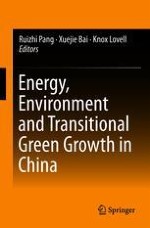2018 | OriginalPaper | Buchkapitel
2. Composite Indicators for Sustainability Assessment: Methodological Developments
verfasst von : P. Zhou, L. P. Zhang
Erschienen in: Energy, Environment and Transitional Green Growth in China
Verlag: Springer Singapore
Aktivieren Sie unsere intelligente Suche, um passende Fachinhalte oder Patente zu finden.
Wählen Sie Textabschnitte aus um mit Künstlicher Intelligenz passenden Patente zu finden. powered by
Markieren Sie Textabschnitte, um KI-gestützt weitere passende Inhalte zu finden. powered by
